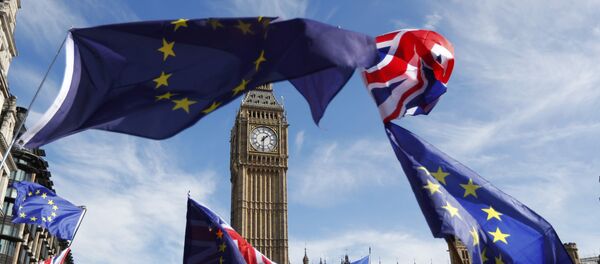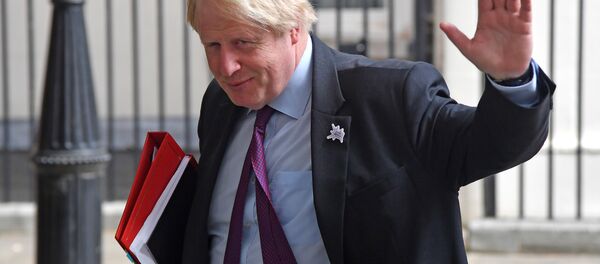The Chequers plan is the only way to get a Brexit deal that meets the government’s objectives, according to UK Prime Minister Theresa May's spokesman.
"The British public have voted to leave the European Union. There is not going to be a second referendum… under any circumstances," the spokesman told reporters.
The European Research Group has proposed four amendments to the taxation bill, as it bids to pressure the prime minister back to a hard Brexit stance.
"We will consider the amendments and set out our position in due course," the UK prime minister's spokesman stated.
Theresa May's former Education Secretary Justine Greening earlier demanded that UK citizens be given the choice to remain in the EU in a second Referendum.
"The only solution is to take the final Brexit decision out of the hands of deadlocked politicians, away from the backroom deals, and give it back to the people," she said.
Greening, a member of the ruling Conservative Party, resigned as secretary of state for education in January amid the government reshuffle.
READ MORE: Worst Fears: Europeans Brace for Post-Brexit Border Control Woes
The document affirmed that London was to withdraw from the EU’s Single Market and Customs Union, ending free movement and the jurisdiction of the European Court of Justice in the United Kingdom.
It also announced plans to introduce a special customs procedure with the European Union, which would be completed gradually.
READ MORE: UK PM Theresa May Reveals Trump Told Her to Sue EU
The Cabinet discussions in early July resulted in the resignations of Brexit Secretary David Davis and Foreign Secretary Boris Johnson in protest against May's stance to postpone the decisions and preparations for a "no deal Brexit."
Another controversial issue of the Brexit deal is avoiding a "hard" Irish border, with the Democratic Unionist Party (DUP) reportedly stating that it wants the region to be treated like the rest of the United Kingdom.
The United Kingdom voted to leave the European Union in a referendum in 2016.
Brexit negotiations officially began in June 2017 and are expected to be completed by the end of March 2019.




